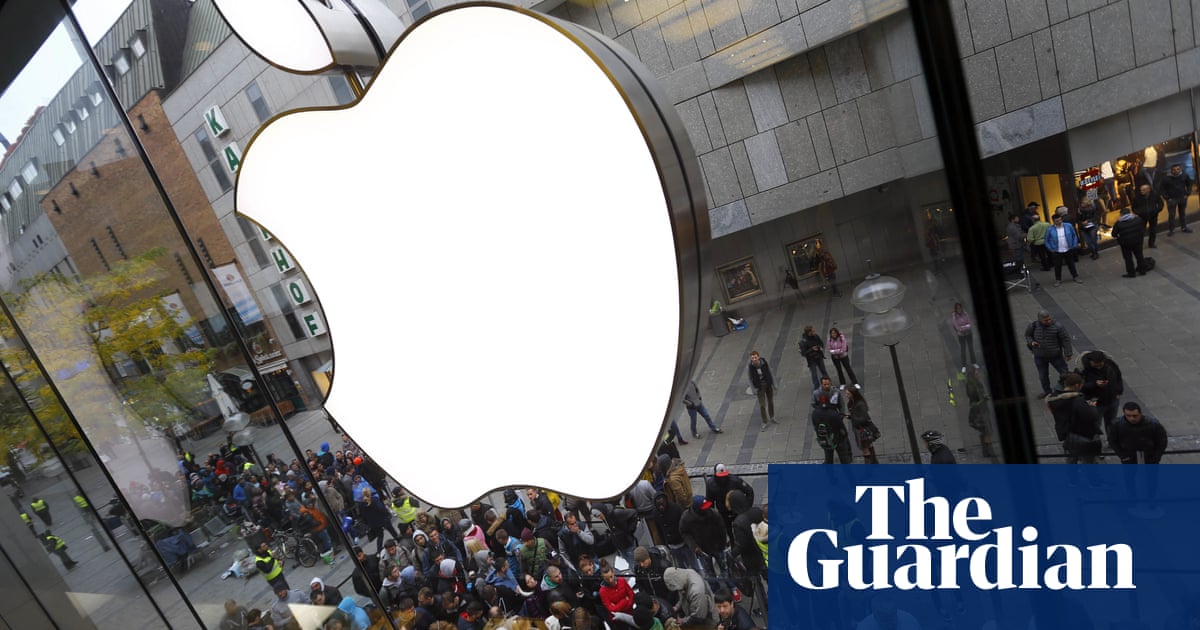
The European commission has been dealt a major blow in its battle to stop EU member states granting sweetheart tax deals to multinational corporations after the bloc’s general court ruled that Apple did not need to pay €13bn (£11.7bn) in back taxes to the Irish government.
The Luxembourg-based court found the EU’s executive body had failed to prove that the iPhone maker benefited from an allegedly illegal arrangement with the Irish authorities, in a decision with wide repercussions for the bloc’s plans to clamp down on tax avoidance.
The commission has active cases against Ikea and Nike over alleged sweetheart deals granted by the Dutch government. Brussels also launched an investigation in March into the tax treatment granted by Luxembourg to the Finnish food packaging company Huhtamäki.
The Irish government, which has been seeking to protect its low-tax regime, welcomed the EU court’s ruling.
It said: “Ireland has always been clear that there was no special treatment provided. Ireland appealed the commission decision on the basis that Ireland granted no state aid and the decision today from the court supports that view.”
Four years ago the commission ordered Apple to pay for gross underpayment of tax on profits across the European bloc over an 11-year period between 2003 and 2014.
It said the multinational, whose headquarters are in Cupertino, California, had been able to use two shell companies incorporated in Ireland, with the agreement of the local tax authorities, to report Europe-wide profits at effective rates well under 1% – and as low as 0.005% in 2014.
But the Luxembourg-based general court said on Wednesday: “The commission did not succeed in showing to the requisite legal standard that there was an advantage.”
It said the commission was wrong to declare that Apple “had been granted a selective economic advantage and, by extension, state aid”.
Tove Maria Ryding, a tax justice coordinator at the European Network on Debt and Development, said the decision highlighted the inadequacy of the EU’s tools in fighting corporate tax avoidance.
She said: “Today’s court decision illustrates how difficult it is to use EU state aid rules to collect tax.
“If we had a proper corporate tax system, we wouldn’t need long court cases to find out whether it is legal for multinational corporations to pay less than 1% in taxes.
“This case has been going on for more than six years and if today’s ruling is appealed it’s obviously going to continue even longer. It shouldn’t take over half a decade to decide what a multinational corporation should pay in tax. This case illustrates that our corporate tax system is a mess and not fit for purpose.”
Welcoming the ruling, a spokesman for Apple said: “This case was not about how much tax we pay, but where we are required to pay it. We’re proud to be the largest taxpayer in the world as we know the important role tax payments play in society.
“Apple has paid more than $100bn [£79bn] in corporate income taxes around the world in the last decade and tens of billions more in other taxes. Changes in how a multinational company’s income tax payments are split between different countries require a global solution, and Apple encourages this work to continue.
“We are also proud to be a powerful engine of economic growth in Europe. Last year we spent over €13bn with 4,500 suppliers of all sizes. Our innovation and investment supports more than 1.8m jobs across the EU.”
The ruling is just the latest blow to Margrethe Vestager, who has pioneered crackdowns on tax avoidance by US firms during her time as the EU’s competition commissioner.
The general court overturned the commission’s demand for Starbucks to pay up to €30m in back taxes to the Dutch authorities. In a separate case, the court threw out a commission decision against a Belgian tax scheme for 39 multinationals.
Ireland loses its right to €13bn in back taxes at a time of economic recession but says the decision offers greater long-term opportunities.
Multinationals such as Facebook and Google account for one in 10 jobs in Ireland, with 13,867 net roles being added in 2019, just short of the record 14,000 job gains from such firms in 2018.
The commission has the right to appeal on the points of law of the court’s ruling but a spokesman declined to comment.












